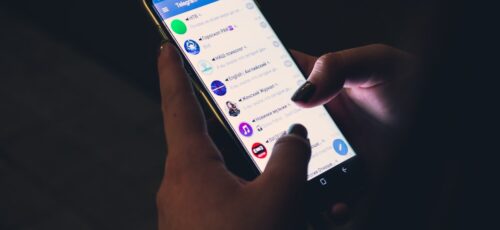
Unfortunately, not all numbers are portable. Most carrier’s coverage area is always changing. Something that’s not portable currently might be portable later.
For example, when the FCC broke up the big Bell companies a few decades ago, they allowed some smaller rural carriers, called ILECs, to keep the numbers they had so they wouldn’t have unfair competition. An ILEC (incumbent local exchange carrier) is a telephone company in the United States that was providing local service when the Telecommunications Act of 1996 was enacted. An ILEC doesn’t have to port their numbers out except to a wireless carrier. That may mean that a rural carrier can say no, ‘I’m sorry, we aren’t going to port that number’. Companies may be able to port their number to a wireless carrier first, and decide later, once it’s on the wireless carrier, that they want to port to another carrier.
Reasons for porting your number
People become attached to their phone numbers. Once they have a number, they don’t want to let go of it. Especially if it’s a vanity number that spells out their company name or a phrase they use in their business. It may be a number that they’ve had for a long time. They want to keep the numbers because they know people associate that number with them or their business. Your phone number may have a lot of intrinsic brand value and changing it makes it more difficult for people to reach you. In many cases changing your number can translate to lost revenue.

Branding is a valid reason to want to take your phone numbers with you when you change providers. Your business and your employees are associated with a series of numbers you’ve been using, and you want to make sure that you don’t have to change over everything when you move to a new provider. So typically, that’s why you want to take your phone numbers with you.
It tends to be simpler and less expensive for a business to move their numbers versus completely redoing their marketing collateral, signage, and business cards to update them with new numbers. Even single user customers may have had the same number associated with their phone since high school and prefer not to change it. People form attachments to the things that they’ve had for a long time and they certainly become attached to their phone number. It also makes it easier for their friends to know how to get a hold of them and stay in touch.
SMS Portability
SMS currently is on the fringe of the telecom frontier. The FCC is still trying to figure out how to manage SMS, and there aren’t as many regulations in place for SMS. Generally, users have the option to bring SMS services over to new carrier networks as part of the porting process.
APIs for Porting
Flowroute clients and resellers that do a lot of number porting have access to our porting API. The API automates much of the port order process and makes it a lot easier to tap through the system each time. Here are some of the ways our API makes the porting process easier:
- Validate portability of long code or toll-free phone numbers
- Create port orders for valid long code or toll-free numbers
- Preset related services for the porting phone numbers
- Configure real-time porting notifications
- View port order details and status
- Update the phone numbers in a port order
- Update details in a port order
- Upload business documents for the port order
- Submit a Letter of Agency (LOA) for your port order
- Cancel a port order
You can learn more about the Flowroute Porting API information here.
Looking ahead
Chances are that the number porting process will likely stay the same for the near future. Right now, you may see a long list of numbers on your phone bill with charges per second, but they’re not the actual phone numbers. They are internal numbers that relate to a phone number. If the actual numbers were listed on the bill, it would be much simpler to have that transparency. The FCC generally issues guidelines instead of hard and fast rules when it comes to reporting. That means we are likely to continue to have a somewhat complex number porting process across the industry.
Flowroute has a dedicated and experienced porting team, based in Seattle, that works with customers to navigate the entire porting process from start to finish. You can learn more about the Flowroute number portability process here.






